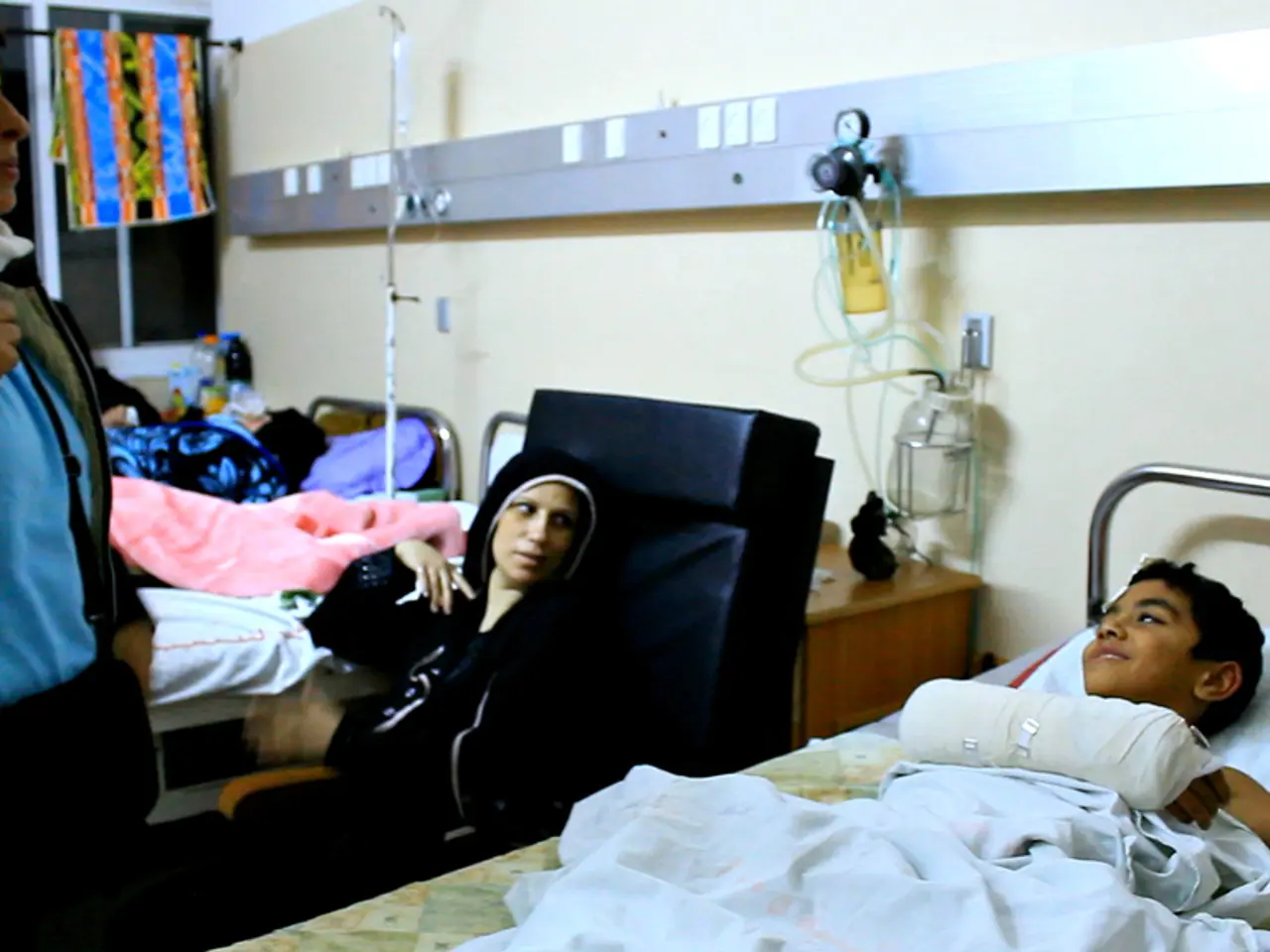Health minister anticipates avoidance of widespread clinic shutdowns - Minister of Health Does Not Anticipate Clinic Fatality
The hospital landscape in Brandenburg, Germany, is undergoing significant changes as part of a reform aimed at reducing the number of clinics and improving the quality of care.
Some hospitals will be transformed into outpatient clinics, with the focus shifting towards ambulatory care to reduce costly inpatient stays. This reform strategy also includes engaging all health stakeholders through regional conferences to shape the reform collaboratively, ensuring sector-overlapping healthcare solutions.
The reform is not without controversy, as some hospitals in surrounding areas, like those in the Uckermark region, face financial distress and potential closure. However, efforts are being made to provide millions in funding to save certain locations, such as sites in Uckermark.
For the Oberhavel district, which includes Wittstock/Dosse, there is no direct mention of planned clinic closures or significant changes. The clinics in Oberhavel are currently financially stable, and the closure of the Hennigsdorf site was considered inexplicable because the numbers are positive. This suggests that clinics in Oberhavel may be supported or at least not immediately threatened with closure.
However, it is important to note that KMG Clinics, the operator of the Wittstock/Dosse hospital, has announced that the hospital is scheduled to close by the end of 2026.
Brandenburg Health Minister Britta Müller has stated that not all services are needed at all locations and admitted that the reform will result in longer trips to the doctor. Despite this, she expects no clinic closures in Brandenburg due to the reform.
Müller has emphasized the importance of balancing financial viability and care access by preventing insolvencies with targeted financing while promoting a more outpatient-oriented system. This reform aligns with the broader German hospital reform focus on reducing hospital numbers and improving efficiency through digitalization and structural changes.
In summary, the Wittstock/Dosse clinic's status has not been publicly flagged for closure amid the reform. Brandenburg's hospital reform supports outpatient care expansion and restructures hospital locations based on financial and healthcare priorities. Regional conferences with stakeholders are part of the minister's plan to ensure community needs are considered. Nearby hospitals in the region receive financial aid to prevent closure, suggesting potential support for Wittstock/Dosse if needed. However, the hospital in Wittstock/Dosse is scheduled to close by the end of 2026 according to KMG Clinics. All locations must realign themselves according to Müller, and changes to the healthcare system in Brandenburg are inevitable.
[1] Brandenburg Ministry of Health and Social Affairs. (n.d.). Hospital Reform in Brandenburg. Retrieved from https://www.brandenburg.de/gesundheit/krankenhaeuser/krankenhaeuser-reform/
[2] German Hospital Federation. (n.d.). German Hospital Reform. Retrieved from https://www.ksk-online.de/de/themen/krankenhaeuser/krankenhaeuser-reform/
- In light of the hospital reform in Brandenburg, the Community Policy will need to address the shift towards outpatient care, employment policies for personnel in the restructured hospitals, and collaboration with regional stakeholders to ensure health-and-wellness for all residents.
- The closure of the Wittstock/Dosse hospital by the end of 2026, according to KMG Clinics, presents a challenge for medical-conditions management in the community, highlighting the need for science and evidence-based solutions to maintain healthcare access during such transitions.




